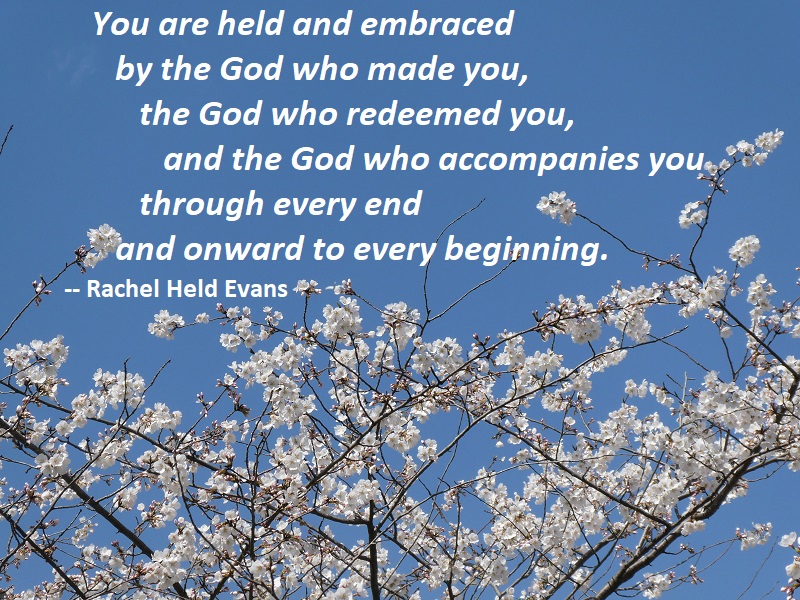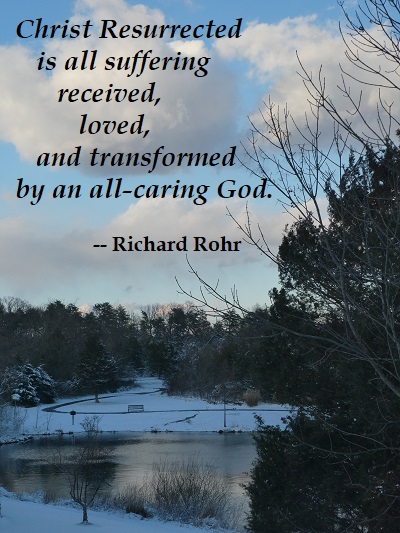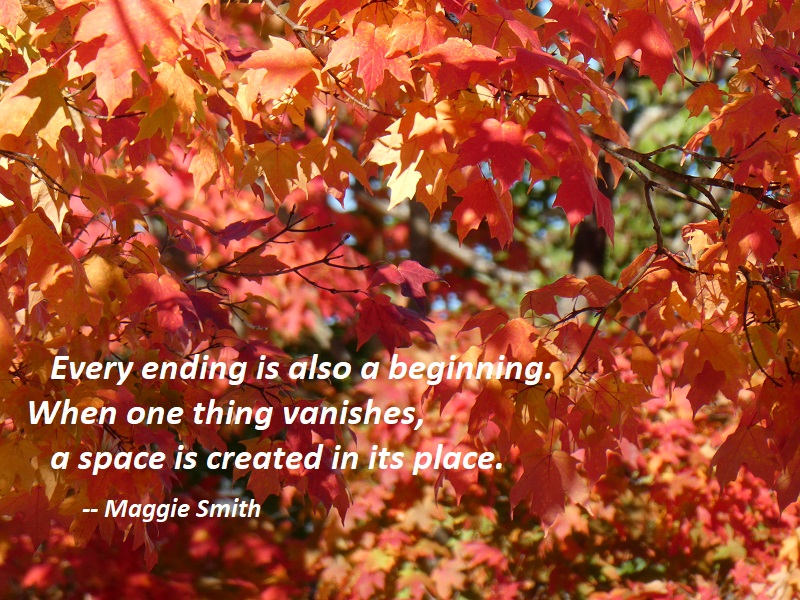He First Loved Us.
We can be gracious because we are grateful. We can love because we have been loved.
On the days when I believe, I know all this to be true. On the days when you believe, I hope you’ll know this to be true too. I hope you’ll feel deep within your heart and with every cell of your being that you are held and embraced by the God who made you, the God who redeemed you, and the God who accompanies you through every end and onward to every beginning.
Even on the days when I’m not sure I can believe it wholeheartedly, this is still the story I’m willing to be wrong about.
— Rachel Held Evans, Wholehearted Faith, p. 180-181
Photo: South Riding, Virginia, March 21, 2022









